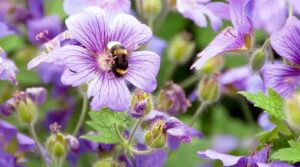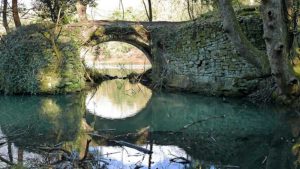To add this calendar to your smartphone, click/tap on ‘Subscribe’ at the bottom of the page.
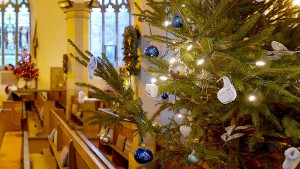
Our annual Christmas Tree Festival will be on December 9th and 10th from 11:00 am to 4:00 pm PLUS a Christmas Bazaar (also in church) on the 9th with Father Christmas Grotto, Preserves, Wreaths, Decorations, Pottery etc etc.
Refreshments will be available on both days of homemade soup and cakes PLUS on Saturday, Homemade Beef Baps.

Our annual Christmas Tree Festival will be on December 9th and 10th from 11:00 am to 4:00 pm PLUS a Christmas Bazaar (also in church) on the 9th with Father Christmas Grotto, Preserves, Wreaths, Decorations, Pottery etc etc.
Refreshments will be available on both days of homemade soup and cakes PLUS on Saturday, Homemade Beef Baps.

The Dower House garden has been actively developed over recent years and is looking better than ever.
Admission is £8, children are free, the doors open at 10 am and close at 4 pm. There is no need to book in advance although if you wish you can do so by going to the NGS website. The National Gardens Scheme receive all the proceeds from admissions and teas to support their charitable giving to (mainly) Macmillan, Marie Curie, Hospice UK, The Queen’s Nursing Institute, the Carers Trust and Parkinson’s UK.

The Dower House garden has been actively developed over recent years and is looking better than ever.
Admission is £8, children are free, the doors open at 10 am and close at 4 pm. There is no need to book in advance although if you wish you can do so by going to the NGS website. The National Gardens Scheme receive all the proceeds from admissions and teas to support their charitable giving to (mainly) Macmillan, Marie Curie, Hospice UK, The Queen’s Nursing Institute, the Carers Trust and Parkinson’s UK.

On Saturday the 11th The Derby Bach Choir are holding a Come and Sing day starting at 1.30 p.m.. If you would like to sing, please contact Jenny Casboult on 01335 350285.
If you would just like to hear the final performance it will be at 6.00 p.m.
A charge for the performance of £5 at the door.
The programme includes Mozart’s Mass in C (Coronation and Vespers).
Conductor James Foulds
Organist Tom Corfield
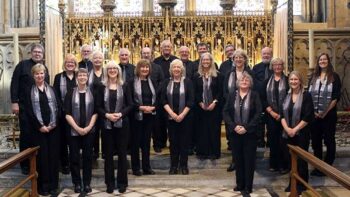
Chamber Choir Viva La Musica has become recognised locally as one of the more exciting vocal ensembles performing across the East Midlands. The Loughborough-based choir attracts singers from a wide area. Its repertoire ranges across the centuries and embraces both sacred and secular music in various styles. Simon Lumby conducts the choir.
‘Now is the month of Maying’ is a concert celebrating nature and the season. It will include a selection of madrigals and works by Lauridsen, Finzi and Rachmaninoff.
This late-afternoon concert will last approximately an hour and a quarter. There will be refreshments to follow.
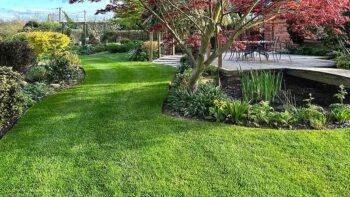
A diverse selection of 12 gardens will open during the Milton Open Gardens event this year. Gardens will be open on 2 June in the afternoon between 1:00 pm and 5:00 pm in the normally quiet hamlet of Milton, South Derbyshire. There will be 9 along Main Street and 3 at The Waterworks. This year there are 3 gardens new to the event and one that has been ‘resting’ for a few years.
Sizes vary from a small courtyard to extensive gardens with styles ranging from cottage garden, low maintenance and some with more formal features.
There will be free parking in the centre of Milton and at The Waterworks. Admission is £5.00 for adults, and accompanied children under 16 are free. (Some gardens do not allow dogs). Tickets are available on the day adjacent to the car park.
Expect to find trees, shrubs, lawns, flowers, vegetables and ponds – something for everyone, and all the gardens, in Milton and at The Waterworks, are within easy walking distance of each other.
There will be live music courtesy of Boss&CO with refreshments including homemade cakes available in the Village Hall, with Tombola, stalls and plants for sale on the grass opposite.
Profits are in aid of the local Air Ambulance and Milton Community Lunch Club.
A warm Milton welcome awaits visitors old and new.
A concert of popular, well-loved music, given by the music group from the Swadlincote Oasis.
Performed in Victorian Mourning dress we explore Warwick Castle and Calke Abbey’s “not so living history”.
The secrets that lie beneath and the inhabitants that still occupy the rooms, corridors and grounds of two very different Stately Homes as witnessed by myself, colleagues and guests.
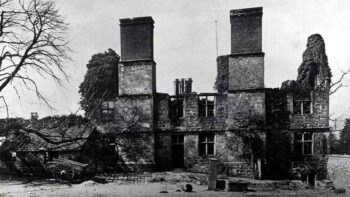
Much of Melbourne’s history can be told by the story of individual houses in the parish and their occupants. This talk by Melbourne History Group Chairman Philip Heath, given on Saturday, 16 November, at 7:30 pm at Melbourne Assembly Rooms Main, selects twelve of the most interesting ones to prove the point.
Admission is £4 (Under 16s free if accompanied by an adult). Refreshments will be available.
The Pigeon – from the gods to the gutter. Dove of peace or rat with wings? A look at our perceptions and complex relationship with this remarkable bird throughout history.
The Derwent Valley: The Story of a Photo Book – Ashley Franklin tells the story of how he assembled the first-ever photo book to celebrate the Derwent Valley Mills World Heritage Site published in November 2023.
Ashley’s talk will take us through the book’s three thematic sections – Industrial Heritage, People and Places and Wildlife – and show how the book encapsulates the valley’s historical significance, its communities, and its rich biodiversity.
Preparing for apocalypse – Britain and the Cold War. – Jed Jaggard.
The Cold War was an ongoing political rivalry between the United States, the Soviet Union and their respective allies that developed after World War II. There was no direct military engagement between the United States and the Soviet Union. However, this period was anything but “cold”.
The Salvation Army – Danny Wells.
Catherine Booth was fortified with the spirit and convictions of early 19th-century rural Methodism of the Midlands. Having met a kindred spirit in William Booth of Nottingham, they were to take their pre-industrial Methodist creed into the religious and political fulcrum of the East End of London in the second half of the century.
The response of the Booths to the poverty, hunger, squalor and ‘sin’ that they observed all around them, was to create the Salvation Army as a ‘Way out of Darkest England’.
It became the fastest-growing religious movement of late Victorian Britain and is still a religious and social service agency of international importance today.


